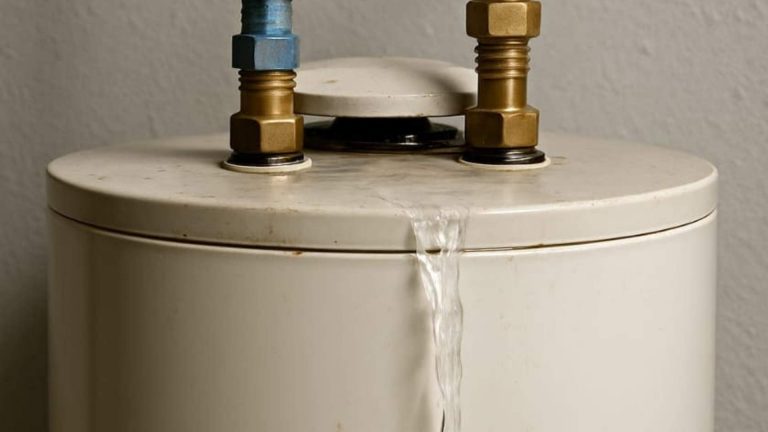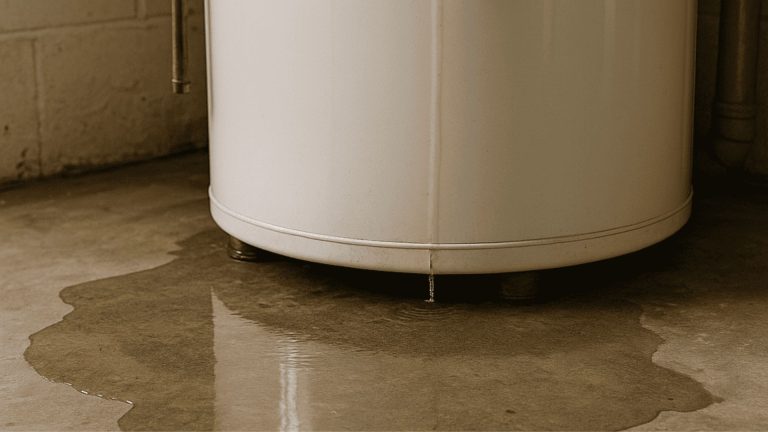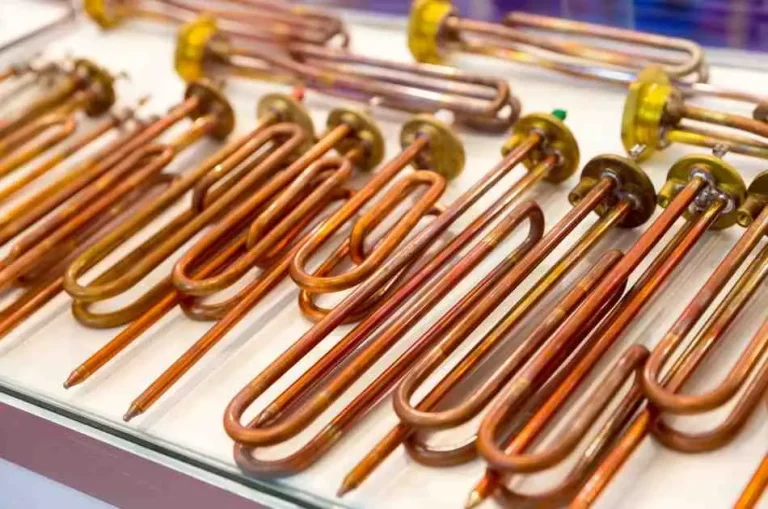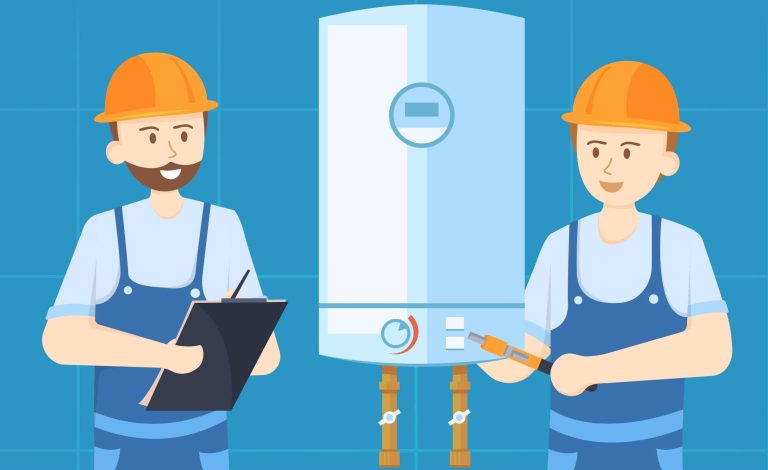How long do water heaters last? Lifespan Pro Tips
Water heaters are essential appliances for any home. They provide hot water for showers, clean, and perform daily tasks. Many homeowners don’t know how long their water heater will last or when to plan for a replacement. How long do water heaters last? This guide will explain the water heater lifespan. And the factors that influence the life of your water heater. We’ll also discuss the signs that it may be nearing the end.
- Budgeting for replacements in advance of sudden failure
- Selecting the right water heater for your home
- Schedule maintenance to prevent early breakdowns
- By using an energy-efficient unit, you can save money and reduce utility bills.
Understanding what to expect with a water heater will help you avoid unpleasant surprises and unnecessary costs.
Table of Contents
The Life Expectancy of All Types of Water Heaters
The strengths, weaknesses and lifespan of different technologies are all different. The major types of technology and their expected lifespans under normal conditions are listed below.
| best types of water heaters? | Typical Lifespan* | Pros | Reasons of age reduction |
|---|---|---|---|
| Gas or Electric Conventional Storage Tanks | 8-12 years | Simple installation; lower upfront costs | Anode rods depletion, tank corrosion, sediment accumulation, leaks |
| Tankless / on Demand | Around 20 years | Compact, efficient (no storage losses), longer life if maintained | Scale buildup (hard water), flow-rate demands, component wear |
| Heat Pump/Hybrid | 10-15 years | Energy savings and higher efficiency are possible with a lower operating cost. | Installation quality (must be in a certain temperature range), complexity, and ambient conditions |
| Solar Water Heaters | 20 years plus | Renewable energy, lower operating cost over time | Weather exposure, pump/electronics failure, panel efficiency and maintenance costs |
*These lifespans are based on average or good maintenance. Individual performance may vary.
What determines the Water heater’s life?
Understanding what causes your water heater to wear out will help you get the most life out of it.
1. Build Quality and Material
- Material of the heat exchanger or tank: Stainless steel is preferred over lower-grade steel with thin linings.
- Quality of the valves, heating elements/burners, insulation and seals.
- Warranty periods and reputation of the manufacturer (the longer the warranty period, the more confident you will be).
2. Water Quality & Mineral/Sediment build-up
- Hard water (a lot of minerals) causes scale, which clogs pipes, insulates heating elements and speeds up corrosion.
- The sediment settles on the bottom of tanks, which causes rumbling and inefficient heating. Components are also stressed.
- The acidity or corrosion of water can wear away the metal or lining.
3. Use Patterns and Load
- The heater will be used more frequently if it is too small for your household.
- The unit is stressed by frequent high demand (large families, multiple showers, laundry and dishwasher usage).
- Intermittent use (e.g. some types can be problematic when used for long periods of time with low hot water usage.
4. Temperature setting & Operating conditions
- The higher the temperature, the more stress you will experience: Hotter water accelerates corrosion and sedimentation.
- Temperature fluctuations in the ambient environment can cause units to be more stressed.
- Correct clearance (for gas units), avoid exposure to moisture or weather.
5. Protective Components & Maintenance
- Anode rods are “sacrificial parts” that protect the tank from corrosion. Replace every few (usually 3-5) years to protect the water heater tank from corrosion.
- To avoid dangerous overpressure, the temperature and pressure relief valve (T&P) must be inspected periodically.
- Remove sediment by flushing the tank (for storage tanks). As needed, either annually or semiannually.
How long do water heaters last? Warning Signs
The life of your water heater will eventually degrade, even with proper care. These warning signs may indicate that it’s time to replace your water heater.
- Age
- Storage/tank water heating units have a lifespan of 8-12 years. After that, many units have problems.
- Tankless can last up to 20 years.
- Corrosion / Rust
- Rust on the water lines may be from the bottom of the tank, indicating your water heater may need to be replaced.
- Hot water with a metallic or rusty taste.
- Moisture or Leak From Water Heater
- Seepage around the joints or at the base of the tank.
- Moisture, signs of water damage and puddles around the unit.
- Noise
- Sediment is often moving or bubbling beneath the scale.
- Reduced water supply / Fluctuating temperatures
- Sudden loss or reduced supply of water
- When only one faucet or load is on, water temperature swings (hot/cold).
- High Energy Bills
- With age, efficiency drops; it takes more energy to heat the same amount of water.
- Frequent Water Heater Repairs
- The cost of repairs can outweigh the benefits if you have to fix multiple items over time.
How to Extend Water Heater Lifespan
How Long Does a Hot Water Heater Last? These actions can extend the life of your heater by years.
- If the water in your area is hard, install a water softener.
- Flush heaters for storage/tanks once or twice a year. If you notice signs of accumulation, flush more frequently.
- Replace the anode rod at least every few years. This sacrificial item preserves the tank wall.
- Every 6 months, check the T&P relief valve to make sure the water heater is working properly.
- Maintain a moderate temperature. This is usually between 120-125°F, or 49-52degC, to maintain comfort, safety and longevity.
- Make sure it is installed correctly: the correct size, adequate ventilation (for units that use gas or heated water), and avoid freezing.
- Insulate exposed tanks and pipes to reduce heat loss from the water heater.
- Conduct regular inspections. Look for leaks, rust, strange noises and performance drops.
When to Replace or Repair Old Unit and Buy New Water Heater
It’s not always necessary to replace an item. Sometimes, a simple repair will suffice. How to make a decision.
Consider replacing your old model with a more energy-efficient one. New water heater installation may come with a better warranty or offer greater savings in terms of energy. Look in the market for the best unit. Should it be an electric water heater or a gas water heater, a tank-style water heater or a tankless?
Important Note
A well-maintained heater can last several years longer than the average life expectancy. Many tank water heaters have an 8-12 year rating, but regular maintenance can extend that to 15 years or longer. Tankless heaters can last up to 20 Years. If your heater shows several warning signs or is close to its expected age and has multiple warnings, it is best to replace your water heater. It is safer and more cost-effective.
Conclusion
The lifespan of your water heater depends on the type, how it is used, and how it is maintained, but generally, you should know how long water heaters last. Tank heaters last around 20 years. Heat pump/hybrids and solar models can also survive longer with proper maintenance. Be on the lookout for signs such as leaks, rust or noisy operation. Regular maintenance–flushing tanks, replacing anode rods, moderate temperature setting–can make a big difference. If a heater has several problems and is old, it may be better to replace it than keep patching up the problem. This will save you time, money and effort.
FAQs
Q1 – How can I tell how old my unit is?
A – Look at the serial numbers and manufacturing dates on your water heater. Many manufacturers encode the date into serial numbers. Contact the manufacturer or consult online resources to find out.
Q2 Does using my water heater at higher temperatures reduce its lifespan?
A: Yes. The higher the water heater temperature, the more stress it puts on your unit components. It also accelerates corrosion and scale. The ideal temperature is between 120-125°F, which balances comfort and safety with longevity.
Q3 – Is it correct that a tankless heating system is superior simply because it lasts longer?
A: No. Tankless water heaters can be more efficient, last longer and require less maintenance, but they may cost more up front, need more maintenance, and have to be properly sized. Tanks are more cost-effective in households with lower hot water needs or for smaller households.
Q4 What is the most efficient maintenance task?
A: The two most effective actions are to flush storage heaters (tanks) annually and replace the anode rods every few years. These actions address the main enemies of longevity, sediment and corrosion.
Q5 Is it justified to replace a heater even if it is not broken completely?
It is more cost-effective to replace the heater before it fails, rather than wait until it breaks down. This could lead to expensive damage or an emergency.




